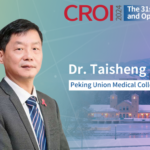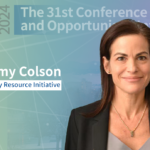
In the challenging field of hematology, the search for effective treatments for relapsed or refractory diffuse large B-cell lymphoma (R/R DLBCL) after CAR-T therapy failure is crucial. Professor Professor Haiwen Huang from The First Affiliated Hospital of Soochow University leads an innovative study exploring allogeneic hematopoietic stem cell transplantation (allo-HSCT) as a promising alternative. This collaborative research not only offers new hope for R/R DLBCL patients but also showcases the pioneering spirit driving advancements in oncology. By providing valuable insights into allo-HSCT's potential, Professor Huang and his team contribute significantly to the evolving landscape of cancer treatment, highlighting the importance of innovation and teamwork in improving patient care.This retrospective study meticulously reviews the outcomes of refractory/relapsed diffuse large B-cell lymphoma (R/R DLBCL) patients who underwent allogeneic hematopoietic stem cell transplantation (allo-HSCT) following unsuccessful chimeric antigen receptor T-cell (CAR-T) therapy, within the timeframe from October 2017 to June 2022. Encompassing a cohort of 10 patients with an equal gender distribution and a median age of 43.5 years, the study observes an overall response rate (ORR) of 60%, alongside a 1-year overall survival (OS) rate of 70% and progression-free survival (PFS) of 40%, thereby highlighting the potential viability and therapeutic efficacy of allo-HSCT in this context.
In the realm of hematology, the challenge of treating R/R DLBCL, particularly post CAR-T therapy failure, necessitates innovative therapeutic approaches. This study seeks to explore the efficacy and safety of allo-HSCT as a subsequent treatment strategy, given the limited options available for this patient population. The lack of a standardized chemotherapy regimen post CAR-T failure underscores the urgency for novel treatments.
To evaluate the outcomes, including survival rates and response, of allo-HSCT in patients with R/R DLBCL who did not respond to CAR-T therapy, thereby providing a critical analysis of its role in the treatment landscape for such challenging cases.
Results:
– The patient cohort included 5 males and 5 females, with a median age of 43.5 years, predominantly at advanced disease stages (Stage IV: 80%).
– Median time from CAR-T therapy to transplantation was 84.5 days, with various conditioning regimens employed.
– All patients achieved complete engraftment, with a median time of 12 days for neutrophil engraftment and 13 days for platelet engraftment.
– At a median follow-up of 21 months, 5 patients achieved complete remission (CR), and 1 achieved partial remission (PR), translating to an ORR of 60%.
– The study documented a 1-year OS rate of 70% and a PFS rate of 40%.
Table 1 Clinical features of patients (n = 10)
| Patient | ||
| No | % | |
| Sex | ||
| Male | 5 | 50.0% |
| Female Age (years) | 5 | 50.0% |
| Range | 27–52 | |
| Median ECOG performance stage | 43.5 | |
| 0–1 | 7 | 70.0% |
| ≥ 2 Ann Arbor clinical stage | 3 | 30.0% |
| III | 2 | 20.0% |
| IV | 8 | 80.0% |
| LDH higher than ULN Disease type | 7 | 70.0% |
| DLBCL Prior therapies Range3–10 | 10 | 100.0% |
| Median IPI | 9 | |
| 0–1 | 0 | 0 |
| 2 | 4 | 40.0% |
| 3 | 5 | 50.0% |
| 4 | 1 | 10.0% |
Allo-HSCT presents a viable and promising therapeutic strategy for R/R DLBCL patients who have not benefited from CAR-T therapy, with significant implications for improving survival rates and quality of life in this high-risk patient group. This study underscores the importance of considering allo-HSCT as a key component in the treatment arsenal for R/R DLBCL post CAR-T failure.
This summary not only encapsulates the core findings and significance of the original research but also provides a detailed overview of its methodology, results, and the contextual background, offering a comprehensive insight into the study’s contribution to the field of hematology and oncology.


